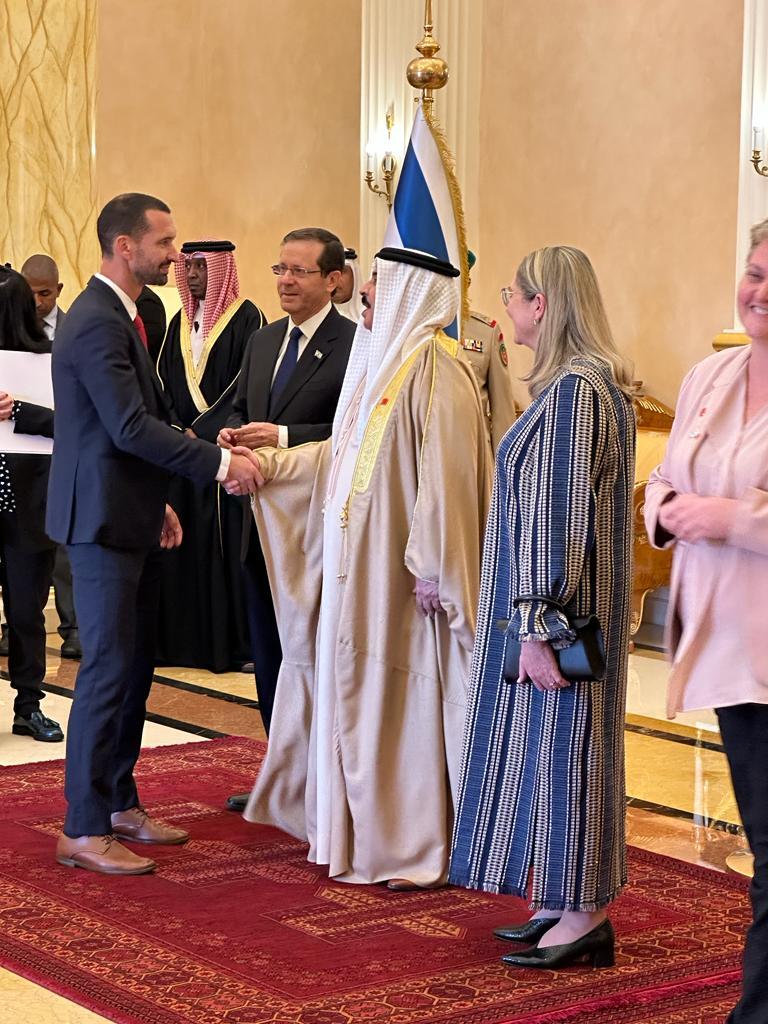
Yariv Becher, VP of Innovation Diplomacy at Start-Up Nation Central, explains how innovation and business collaboration is the key to greater prosperity in the Middle East.
Innovation is what drives us forward as a society. It is how we grow and progress, improve efficiency, and expand knowledge. Every region and country has its own areas of innovative strength, making it imperative to share knowledge if we are to meet our shared, uncertain future. The best way forward is together.
A recognized leader in the global tech ecosystem, Israel is in a position to share knowledge with other countries or organizations that are facing technology gaps. As a nongovernmental and nonprofit organization, Start-Up Nation Central employs Innovation Diplomacy to leverage Israel’s success in technology for enhanced regional prosperity, stability, and shared success.
This approach is changing the face of international relations: Innovation Diplomacy fosters ties between countries by utilizing technology and innovation as the catalyst. The aim is to identify and collaborate with countries that face gaps and challenges that Israeli innovation can address, leading to solid, long-lasting relationships based on mutually beneficial business engagements. In this sense, the private sector is providing a foundation for governments and nations to work together towards shared goals.
Applying Israel’s Success Story
In Israel’s early days, the country’s recently arrived inhabitants – many of whom were refugees escaping violence and hatred – had to be creative and self-sufficient due to a severe lack of resources and hostile surroundings. These qualities became ingrained in the nation’s DNA, leading to a strong culture of innovation and R&D and contributing to Israel becoming the Startup Nation.
Access to Israeli innovation technology is a huge potential driver when it comes to normalization; innovation enables the sustainable, long-lasting integration of Israel into the region. Furthermore, it creates a frictionless space for cooperation, which in turn solidifies the foundations of these relationships, ensuring they endure external pressures and periods of political crisis.
Start-Up Nation Central contributes to this ecosystem by facilitating tech and business engagements to address global challenges. The story of Israel’s evolution to an innovation superpower is a model that other countries can emulate – albeit in their own unique way. As Yariv explains, the goal is to share and integrate the lessons learned from Israel’s journey to become a Start-Up Nation as part of the engagement process.
By sharing Israel’s experience and knowledge accumulated as a young, yet successful global tech leader, Innovation Diplomacy provides a potential roadmap for other economies – and may even help them avoid some pitfalls along the way.
Exchanging Tech and Business Knowledge With Morocco
One example of Innovation Diplomacy in action was the Connect to Innovate conference in May of 2022 when Start-Up Nation Central teamed up with Moroccan firm CPR to explore potential technological solutions to shared challenges. SNC brought more than eighty people, including Israeli startups, investors, and government officials, to Casablanca – each one relevant to one of the four sectors that the Moroccan government identified as part of their long-term strategic growth plan (logistics, energy, water, and agriculture).
At the same time, SNC organized two workshops on site with four Israeli business and innovation leaders for Moroccan counterparts: one on the development of human capital using training modules, and the other focused on innovation ecosystem building. Representatives from Moroccan government agencies took part in these workshops and participated in interactive discussions on the different ‘ingredients’ needed to develop a successful innovation ecosystem.
Following the conference, in November of 2022, a delegation from the University of Mohammad VI visited Israel for four days to accelerate the technological knowledge-sharing between the two nations. Start-Up Nation Central organized the visit which included several talks from expert speakers, workshops on entrepreneurship in academia, and a tech-tour of universities in Israel.
The Time To Focus On Innovation is Right Now
The Abraham Accords, a series of agreements between Israel and the United Arab Emirates, Bahrain, Morocco, and later Sudan, and mediated by the United States, came into effect on September 15, 2020. These agreements include official recognition of Israel’s sovereignty, as well as the establishment of full diplomatic relations between the countries, and as such have been a major catalyst for Start-Up Nation Central to bring Innovation Diplomacy to the forefront of normalization efforts.
Following the ratification of the Abraham Accords, Israeli government and business leaders convened with other member countries to identify knowledge and tech-sharing opportunities. SNC is enhancing the potential of these new relationships and is directing a range of activities on building mutually beneficial economic exchange: “Start-Up Nation Central is in a unique position – and we consider this our obligation” says Yariv Becher.
In order to continue strengthening these ties, Israel isn’t only providing access to its technology and innovation but is also sharing the experience of how it became the Startup Nation.
Innovation Diplomacy Matters
Since the Abraham Accords, Israel has had the opportunity to offer technological solutions to challenges experienced by countries with whom they previously had less-than-friendly relationships.
Now that there are conversations happening between these countries, and there is a better understanding of shared problems, Israel has a clear path to make positive contributions. SNC shines a spotlight on Israeli innovation that can support addressing challenges. Since the signing of the accords, there has been steady growth in the business relations between member countries. With time and trust, it is safe to say that this growth will only accelerate.
Innovation Diplomacy leverages Israel’s knowledge and experience to foster deeper relationships and integrate more seamlessly into the region while supporting partners’ long-term strategic growth programs. This benefits everyone involved, and the ripple effect benefits the region – and the world – as a whole.
